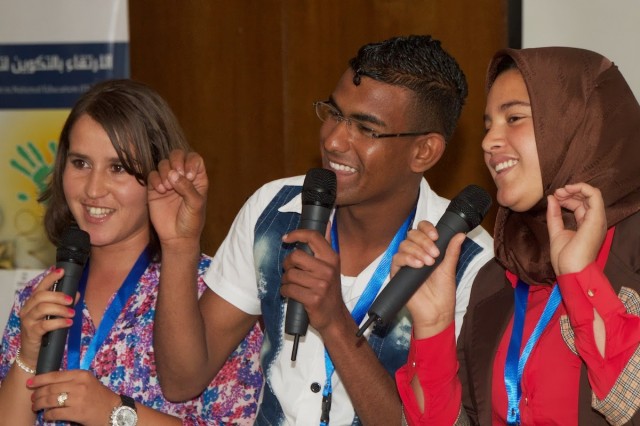USAID recently launched a new reform project with the Moroccan Ministry of Education. Through the “Support for Training to Improve Quality” project, Creative Associates will support the Ministry’s reform goals to improve teachers’ professional skills and help stem the tide of middle school drop-outs.
Creative president Charito Kruvant underscored, “When education truly engages young people, their lives will be different. Those who stay in school are far more likely to delay starting a family and find success in the workplace. This has a broad and positive influence not only on their lives, but on their neighborhoods, their country and the regions where they live.”
The gap between policy reform and improved student performance is often wide. As Morocco moves its reform initiatives from theory to application in schools, ensuring that policy reform messages are understood and suited to school-based realities is the priority. On behalf of USAID, Creative will support Education Ministry leaders in Rabat and the Ministry’s Regional Education Academies in developing a common vision that supports an integrated teacher training system bolstered by post-training monitoring. The Creative-led team will help strengthen the links between training institutes and Regional Education Academies by adapting modules to the teacher training curriculum for instructors and school leaders, including inspectors.
A key element of improving the quality of education is empowering teachers to lead change in their schools. By the end of the Education Quality project, the Ministry’s teacher training institutes will ensure closer collaboration among teacher trainers with an improved curriculum, including published guides for 21 middle school teacher training modules. Alguns 500 school leaders will be engaged to support teachers and school communities.
The Project will also test a curriculum innovation aimed at involving communities in activities to keep youth in school. Using the Passport to Success lifeskills training method, the project will equip young people with educational opportunities and professional skills that give them confidence to succeed in life. The approach highlights a service-focused learning program aimed at helping young people embrace the value of giving back to their communities and encouraging community leaders, including local businesses, to actively engage with youth.
“The middle school years are a key transition period in the lives of young people when they become increasingly involved in making decisions—including whether or not to stay in school—that will influence the rest of their lives,” said the Project’s Chief of Party Christina H. N’Tchougan-Sonou. “Youth are searching for relevant options for training that will ensure their futures, and the Moroccan government is committed to opening up a broader range of choices in support of these aspirations.”
